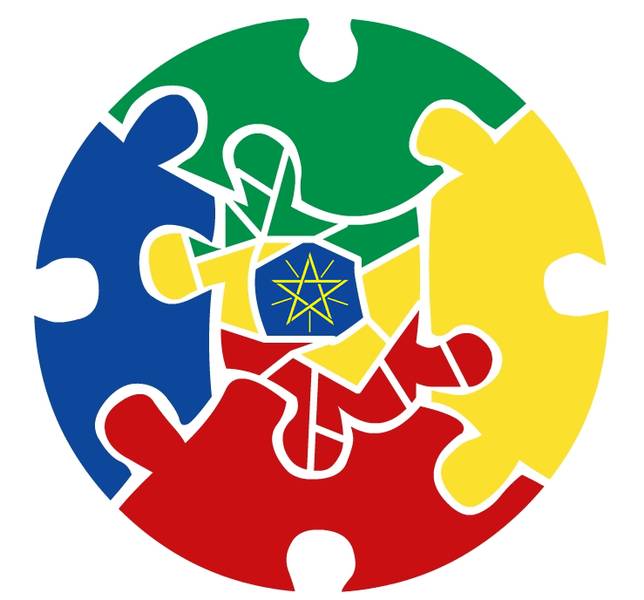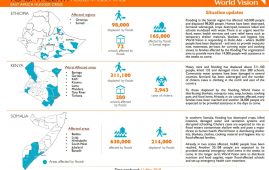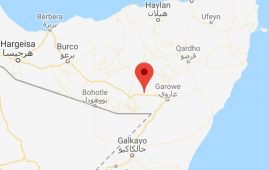Highlights
* the [Somaliland] government in September ordered employers to fire all "illegal foreigners" as part of its commitment to expelling them from the territory
* Human rights organizations estimate that about 45,000 illegal migrants have left Somaliland since the government directive but those remaining were living in difficult circumstances, with some hiding in their homes for fear of deportation…..fearing attacks and deportation.
*….rights groups say at least 30 Ethiopian Somalis were arrested 20 days ago in the border town of Lawya-addo.
Migrants in Somaliland, especially those from Ethiopia, have increasingly come under attack since the government in the self-declared independent state in September ordered employers to fire all "illegal foreigners" as part of its commitment to expelling them from the territory, according to rights organizations.
fire all "illegal foreigners" as part of its commitment to expelling them from the territory, according to rights organizations.
"Many of those targeted for attack in the past one-and-a-half months live in the eight IDP [internally displaced persons] camps in Hargeisa," said Abdillahi Hassan Digale, an official of the Ubah Social Welfare Organization, which champions the rights of minorities and IDPs. "We have recorded 23 cases of violations, mostly by security groups [young men hired by the community to provide protection services] in these camps. They ask for bribes from the migrants; if they don’t pay up, they are threatened that the police will be notified of their presence in the country."
Digale said most of the illegal migrants targeted were employed as watchmen, domestic servants, rubbish collectors, construction workers, farm hands or latrine diggers.
An estimated 90,000 illegal migrants, mostly Ethiopians, were thought to be in Somaliland by the time the government issued the directive.
On 25 October, the government announced that foreigners working in Somaliland without permission from the Ministry of Labour and Social Affairs would be relieved of their jobs and urged employers to prioritize citizens for work.
Human rights organizations estimate that about 45,000 illegal migrants have left Somaliland since the government directive but those remaining were living in difficult circumstances, with some hiding in their homes for fear of deportation. Others have been camping outside the Social Welfare Centre – run by the international NGO Save the Children with funding support from the UN Refugee Agency, UNHCR – fearing attacks and deportation.
Digale told IRIN: "Only 50 percent of the total estimated number of illegal immigrants has left Somaliland while the 50 percent who remain continue to suffer human rights violations in their settlements, afraid the police could deport them or the citizens could attack them. Already, some have not been paid, despite working for their employers for a month-and-a-half. Others have been beaten by members of the local communities."
Abdi-Hakim Mohamed Elmi, an Ethiopian working as a construction worker in Hargeisa, told IRIN his employer had confiscated his tools and refused to pay him for two days’ work.
"Three weeks ago, I worked on a construction site in 150-ka street in Hargeisa, earning 70,000 Somaliland shillings [US$12.70] per day; when I was not paid for two days, I decided to report to the Dalodho police station but I was told there was no-one to follow up on my case," Elmi said. "I have not gone back to the construction site since then because I am afraid my employer could hurt me."
Khadir Abdalla, from Ethiopia’s Oromiya region, who lives in the Dami IDP settlement in Hargeisa, was attacked 11 days ago by a group of young men in the camp.
"I used to collect trash in the local government area," he said. "A group of young men came to my home one day and asked me to come out. They asked why I was not adhering to the government directive to leave Somaliland. I told them I would go but, instead, they started beating me using sticks and punching me. They took whatever I had. I did not report them to the police because I was afraid… I would be deported."
Ahmed Yare, another Oromo Ethiopian in the Cakaara IDP settlement, said: "Young men came to my house 19 days ago and asked why I had not left the country. I told them I did not have the fare to travel. They beat me up, injuring me in the head before they left."
Rights violations
Ahmed Mohamed Said, chairman of Somaliland’s Counter-Trafficking Network – an umbrella body of local NGOs working with the International Office for Migration (IOM) – said it had registered about 50 cases of human rights violations in the past three months, mainly targeting watchmen, domestic workers, latrine diggers, street sweepers and beggars.
"We submitted these cases to IOM who provided the victims with psycho-social support, rehabilitation and food aid," he said. "There are networks of human traffickers supplying labour from Ethiopia and south-central Somalia; when someone arrives in Somaliland, these middle men link them up to potential employers on condition that he will give up a portion of his salary to them."
Ahmed Elmi Barre, director-general of Somaliland’s Ministry of Rehabilitation, Resettlement and Re-integration, told IRIN the ministry had not received any reports of human rights violations against Ethiopians in Somaliland.
However, rights groups say at least 30 Ethiopian Somalis were arrested 20 days ago in the border town of Lawya-addo. But Mohamed Muse Bu’ul, governor of the region of Selel – from where Lawya-addo is administered – told IRIN the arrests were for security reasons.
Bu’ul said: "We know in the region, there are about 450 foreign workers; arrests can happen for security reasons… A year ago, Somali militia who are members of ONLF [Ogaden National Liberation Front] landed in Somaliland’s western coast; for this reason it is our duty to keep an eye on the security matters in the area."
***********
This article first appeared on Nov. 10, on IRIN – (the humanitarian news and analysis service of the UN OCHA), titled ‘Somalia: Migrants targeted in Somaliland’. Items from IRIN are published in this blog with a written permission to do so. Yet, this doesn’t necessarily indicate an endorsement of the claims therein.
Related posts:(in this blog)
Check the Somaliland archive for previous posts.



